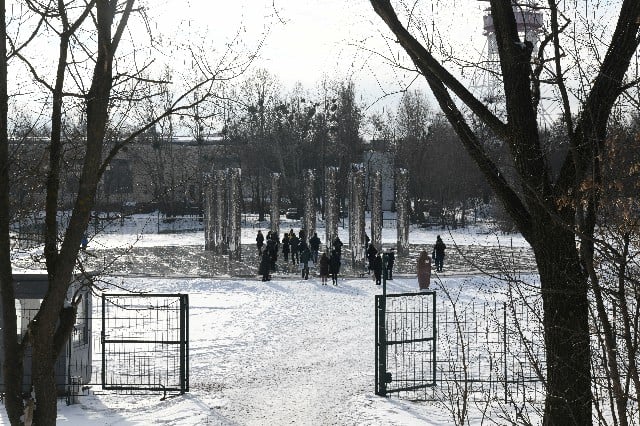Як передає кореспондент Укрінформу, захід організовує Європейська єврейська асоціація (EJA) спільно з Меморіальним центром Голокосту «Бабин Яр» та Федерацією єврейських громад України.
В рамках симпозіуму відбудуться панельні дискусії, присвячені історії Голокосту та боротьбі з антисемітизмом, обговорюватимуться просвітницькі ініціативи за визначеною тематикою. Засновник і президент організації «Яхад-Ін Унум» отець Патрік Дебуа виступить з доповіддю про історію трагедії Бабиного Яру, раніше не відомі факти про катастрофу й політику замовчування в СРСР.
«Ми не можемо полишити це уроком історії. Це не лише історія, але і те, що актуально сьогодні, як і раніше. Ця ненависть, на жаль, не лише існує, але і продовжує зростати», – звернувся до учасників симпозіуму глава EJA Рабин Менахем Марголін.
Читайте також: Будинок контори єврейського кладовища передали для створення Музею жертв Бабиного Яру
Захід проходить за участю членів українського уряду, Голови Верховної Ради, представників Європарламенту, Сейму Польщі та парламентів інших європейських країн, посольства Ізраїлю в Україні та членів єврейських організацій.
«Єдиною запорукою порятунку від попередження і повторення таких жахіть є памʼять. І українці відчувають себе солідарними з мільйонами людей доброї волі у всьому світі, обʼєднані рішучістю убезпечити людство від руйнівних наслідків людиноненависництва, расизму та ксенофобії», – зазначив у виступі спікер Верховної Ради Руслан Стефанчук.
Під час Другої світової війни нацисти, які зайняли Київ, використовували урочище Бабин Яр як місце масових розстрілів цивільного населення, головним чином євреїв. 29 вересня 1941 року за наказом окупаційної адміністрації все єврейське населення було зобов’язане з’явитися до Бабиного Яру. Людей групами проводили через пропускний пункт, після чого заганяли на край яру і розстрілювали. Цього та наступного дня жертвами розправи стало 33 771 особа.
Читайте також: «Бабин Яр. Контекст» Лозниці номінували на премію Європейської кіноакадемії
Загалом масові вбивства в урочищі тривали до самого відходу нацистів із міста. У Бабиному Яру розстріляли більш як 100 тисяч людей.
https://www.ukrinform.ua/rubric-society/3390705-u-kievi-prohodit-miznarodnij-simpozium-prisvacenij-tragedii-babinogo-aru.html















